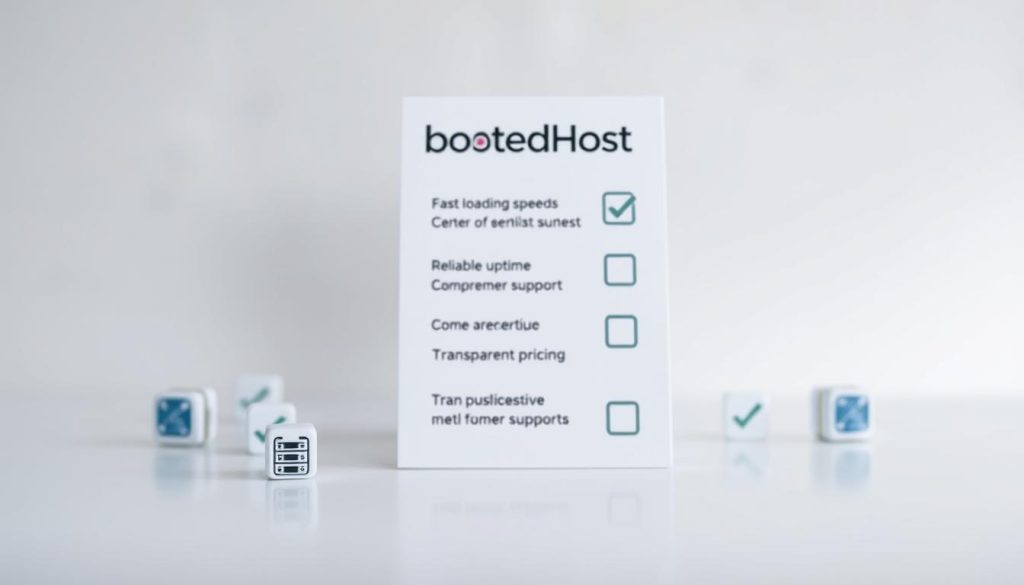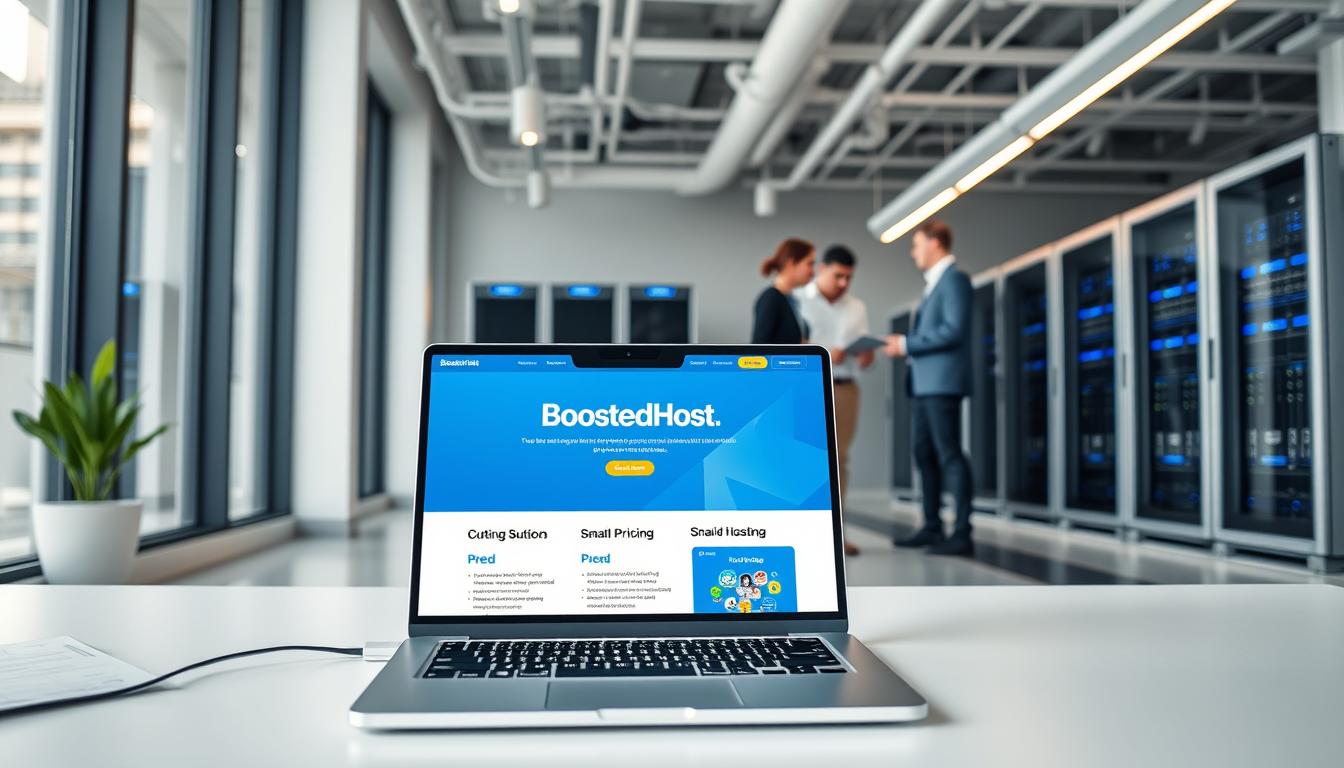Surprising fact: over half of Swiss sites rely on providers that use hydropower or nearby data centers to cut carbon and latency.
You need a clear, no-nonsense guide to pick hosting that fits your goals and budget. Costs range widely — local shared plans sit around CHF 8–25 per month, while VPS plans often hit CHF 50–200. International firms with Swiss regions can start much lower.
In this piece, you’ll get plain-English takes on what affects site speed, uptime, and security. We’ll show how server stack, CDN, and backups shape real-world performance and costs per month.
This intro points you to honest comparisons between Swiss-based and international company options. For a fuller market snapshot and current plan ranges, see our detailed ratings at Swiss hosting ratings.
Key Takeaways
- Swiss data centers often use hydropower, lowering carbon and improving latency.
- Expect local shared plans around CHF 8–25 per month; VPS costs are higher.
- Focus on speed, uptime, and security over marketing claims.
- International providers can be cheaper but affect where your data lives.
- Look for hands-on support and clear pricing after promos end.
Why your Swiss small business host matters in 2025
A hosting choice now affects conversions, compliance, and customer trust. You get faster checkouts and fewer bounces when your site runs near your audience. Local data centers cut latency, so pages feel snappier and users stay engaged.
Uptime and reliability are your insurance policy. Even a few hours offline each month can cost leads and sales. Pick providers that publish clear SLAs and show real uptime stats.
Speed, uptime, and security: what really moves the needle
Speed drives SEO and conversions. Look for SSD/NVMe storage, caching layers, and CDN options that balance local residency with global reach.
Security isn’t optional. Strong SSL, WAF, malware scans, and regular backups protect customer data and show your company takes privacy seriously.
Data sovereignty and customer trust in Switzerland
Many businesses prefer local data residency under the Swiss Data Protection Act (2023). That matters to regulated industries and local customers who expect data kept close to home.
- Ask about certifications, patching cadence, and incident response.
- Plan a hybrid setup if you sell abroad: local data centers plus an edge CDN.
- Evaluate support quality today so small issues don’t become reputation problems.
How we picked: testing speed, uptime, security, support, and value
We ran hands-on tests so you can see how real sites perform under normal loads. Every provider was judged by consistent, repeatable checks. That helps you compare performance without marketing noise.
Real-world WordPress installs and performance checks
We spun up identical WordPress sites and ran GTmetrix to measure Core Web Vitals and page load times. Tests looked for caching, CDN integration, and NVMe storage gains.
We also reviewed control panels and plugin compatibility. That shows how fast you can launch a website and whether tools add friction.
Uptime tracking and support quality under pressure
UptimeRobot monitored sites for weeks to capture real uptime performance. That revealed stability beyond slick uptime claims.
Support was tested via chat, phone, and email during busy hours and off-peak times. We judged responsiveness and how well staff handled incident recovery and backups.
- Security checks: SSL, WAF, malware scans, and restore tests.
- Value checks: total cost per month after renewals, included features, and upsell traps.
- Performance tools: CDN, caching, and backup frequency.
| Test area | Tool | What we measured | Why it matters |
|---|---|---|---|
| Speed | GTmetrix | Load time, LCP, CLS | Directly affects conversions and SEO |
| Uptime | UptimeRobot | Downtime incidents, availability | Keeps your site accessible to users |
| Security & backups | Manual review & restore | SSL, WAF, backup frequency | Protects data and speeds recovery |
| Support | Chat/phone/email tests | Response time and issue resolution | Ensures help when your site needs it |
best web hosting switzerland small business
Deciding where your site lives shapes latency, backups, and customer trust. Use this quick guide to compare local Swiss options with international providers so you can pick a plan that fits your compliance and growth needs.
Top picks at a glance: local Swiss vs international providers
Local-first: Hostpoint offers Swiss-based data centers and multilingual support. SwissMade, Novatrend, Swiss Node, GEO.Hosting, and FireStorm focus on SSD/NVMe stacks and daily backups for low latency and clear data residency.
Global reach: SiteGround runs on Google Cloud with 1-click CDN and geo-distributed backups. Hostinger, Bluehost, DreamHost, Hosting.com (A2), HostGator, and GreenGeeks cover budget, performance, and eco-friendly options.
Who each host is best for (use-case mapping)
- Brochure site or portfolio: budget plans with SSL and basic support; Hostinger or SwissMade work well.
- Blog or multi-author site: caching and backups; SiteGround or DreamHost fit performance and ease.
- Booking portal or WooCommerce: NVMe and tuned stacks; Hostpoint, A2/Hosting.com, or Bluehost are solid picks.
- Privacy-first company or regulated services: choose Swiss data centers for residency and compliance.
“Pick a host that matches your audience location first, then compare features and month pricing.”
| Provider type | Strength | Best for |
|---|---|---|
| Local Swiss | Data residency, local support, low latency | Regulated sites, local customers |
| International | Lower entry pricing, advanced tooling, global CDN | Global shops, growth-focused sites |
| Eco/Green | Renewable power, efficiency | Brands that value sustainability |
Best local Swiss hosting for data privacy and sovereignty
Choosing a local host keeps your data under national rules and cuts round-trip time for users. If you need clear data residency, Swiss providers give both privacy and low latency for local audiences.
Local servers and locations matter when compliance, uptime, and user trust are priorities. You get faster time-to-first-byte and easier legal clarity when data lives nearby.
Hostpoint: Swiss-based infrastructure and multilingual support
Hostpoint runs Swiss data centers and offers multilingual customer care. That makes it easier to resolve issues fast and keep client data inside national borders.
SwissMade, Novatrend, Swiss Node: local performance and care
SwissMade uses modern SSD storage and a simple control panel for managing multiple sites. Novatrend adds DDoS protection and options like cPanel or ISPmanager.
Swiss Node focuses on streamlined SSD performance and daily backups. These providers aim to balance performance with straightforward services for companies that value privacy.
GEO.Hosting and FireStorm: NVMe, KVM, and flexible servers
GEO.Hosting offers a 7‑day test, free SSL, and multiple control panels. FireStorm uses KVM virtualization and NVMe SSDs for responsive performance and customization for power users.
“Local providers keep data close, reduce latency, and simplify compliance — a practical choice when sovereignty and uptime matter.”
| Provider | Key tech | Backups | Why choose |
|---|---|---|---|
| Hostpoint | Swiss data centers, multilingual support | Daily | Reliability and compliance for local clients |
| SwissMade | SSD, custom control panel | Daily | Easy management for multiple sites |
| Novatrend / Swiss Node | cPanel/ISPmanager, SSD | Daily | DDoS protection and simple, fast setup |
| GEO.Hosting / FireStorm | NVMe, KVM options, free SSL | Daily | Flexible servers and trials for testing |
Best value picks for tight budgets (real month-to-month pricing)
If you’re cutting costs, pick plans that keep essentials free and renewals predictable. Value plans should still give you a free domain, SSL, and easy setup so your site launches fast without surprises.
Hostinger trims entry costs and includes LiteSpeed, CDN, an AI site builder, and a 30‑day money-back guarantee. It’s ideal when low month pricing matters and you want extras that speed setup.
Bluehost bundles security features — WAF, malware scans, DDoS protection — plus Cloudflare with Argo and 24/7 chat and phone support. That combo buys peace of mind without adding complexity.
DreamHost stands out for unlimited storage and bandwidth and a long 97‑day guarantee. If you want room to test a plan and traffic grows, this option keeps costs predictable.
HostGator makes migrations painless with a free tool, offers NVMe drives, Cloudflare CDN, and CodeGuard backups. It’s a solid pick when you need simple dashboards and reliable support.
- Tip: Review renewal prices and included backups before you commit.
- Tip: Try a short trial or guarantee window to test support and the control panel.
- Tip: Compare shared plans side-by-side in our shared plans comparison to find the right fit.
Fastest performance for growing small businesses
When growth is on the horizon, you want a stack that keeps pages fast and stable under traffic spikes. Pick a provider that bundles caching, CDN, and modern storage so you don’t need extra tuning just to stay responsive.
SiteGround on Google Cloud
Why it helps: SiteGround runs on Google Cloud with built‑in caching and a 1‑click CDN. That reduces load time and simplifies setup for your site.
Security and resilience: Custom MySQL tuning, smart AI security, and automatic geo‑distributed daily backups mean recovery and protection scale with traffic.
Hosting.com (formerly A2 Hosting)
Why it helps: Hosting.com pairs LiteSpeed servers with NVMe storage and Cloudflare CDN to handle spikes without slowdowns.
The tuned WordPress plugin lowers setup time, and 24/7 support helps you fix performance issues fast. An anytime money‑back policy adds a low‑risk testing window.
- Choose origins with HTTP/3, Brotli, and server‑level caching for measurable speed gains.
- Use geo‑distributed backups to speed restores and reduce downtime impact.
- Plan to upgrade to vps or cloud as traffic grows to avoid surprise throttling.
- Prioritize providers that combine proactive security with performance so one doesn’t hurt the other.
“Pick a stack that gives you caching, CDN, and NVMe drives out of the box — small tweaks later compound into big wins.”
| Provider | Key features | Support |
|---|---|---|
| SiteGround | Google Cloud, 1‑click CDN, caching, geo backups | 24/7 support, performance tuning |
| Hosting.com | LiteSpeed, NVMe, Cloudflare, WP plugin | 24/7 Guru Crew, anytime refund |
| Upgrade path | Cloud/VPS options, HTTP/3, Brotli | Managed migrations and scaling help |
Best for WordPress and WooCommerce stores
Choose a managed plan that frees you from routine maintenance so you can sell with confidence. For a store, that means automatic updates, staging sites, and reliable backups that you can restore in a few clicks.
Managed features that save you time
Automatic updates reduce risk from plugin or core changes. Staging tools let you test theme and checkout edits without touching the live site.
Backups should be daily and easy to restore. Look for on-demand snapshots and clear restore points so experiments don’t cost sales.
SiteGround and Bluehost: specialized WordPress support and tooling
- SiteGround: built-in caching, AI security, 1‑click CDN, and daily backups tuned for WordPress performance.
- Bluehost: staging, an AI site builder, Cloudflare with Argo, WAF, DDoS protection, and 24/7 chat and phone support.
- Both providers include tools like search-replace, staging-to-live, and simple restore points so routine maintenance is fast.
| Provider | Key features | Support |
|---|---|---|
| SiteGround | Cache, CDN, AI security, daily backups | 24/7 WordPress-focused |
| Bluehost | Staging, AI builder, WAF, DDoS | 24/7 chat & phone |
| Why it matters | Faster pages, safer payments, easy restores | Fast recovery on issues |
“Strong, specialized support gets your checkout back online fast when an update breaks a plugin.”
Eco-friendly hosting options for Swiss brands that go green
Choosing a greener host can cut your website’s carbon footprint without slowing page loads. If sustainability matters to your company, you can still get SSD speed, caching, and CDN support while reducing emissions.
GreenGeeks: renewable energy match and performance balance
GreenGeeks offsets 300% of its energy use and funds tree planting with One Tree Planted. That gives your site a clear sustainability story you can share with customers.
Performance is not sacrificed. Modern stacks keep NVMe/SSD storage, server caching, and CDN options so page speed and security stay solid.
Swiss trend: hydropower-backed data centers and lower carbon footprints
In Switzerland many data locations run on hydropower. That reduces emissions and keeps data residency benefits for local businesses and compliance needs.
- Ask providers for sustainability reports and proof of renewables.
- Check that green claims include cooling efficiency and hardware lifecycle plans.
- Look for transparent month pricing and clear resource limits without hidden upsells.
“Combining local data residency with verifiable green practices gives you both trust and measurable impact.”
Tip: Use eco-hosting in your marketing to appeal to values-driven customers, but verify claims so your message stays credible.
Cloud and VPS plans for scale without downtime
Cloud and VPS tiers give you room to breathe when traffic and features grow. Moving up gives your website dedicated CPUs, RAM, and faster storage so peaks no longer crash your pages.
Hostinger VPS and Swiss VPS: more power and control as you grow
Hostinger’s VPS offering
Hostinger’s VPS pairs affordable NVMe storage with generous bandwidth and easy scaling. That balance helps you handle bursts without paying for unused capacity.
If you value simple scaling and lower month pricing on entry tiers, this provider keeps costs reasonable while improving uptime and speed.
Swiss VPS options
Swiss VPS plans focus on local performance, daily backups, and WordPress-friendly installers. You get clean control panels and straightforward snapshot restores.

When to move from shared to VPS or cloud
- When your site hits resource ceilings or slowdowns during campaigns, upgrade to dedicated servers to avoid noisy neighbors.
- Choose cloud hosting if you need regional scaling and flexible billing for growth beyond one market.
- Pick a plan with snapshot backups and rollback to reduce risk during updates or experiments.
| Option | Strength | Best for |
|---|---|---|
| Hostinger VPS | NVMe storage, scalable CPU, low entry cost | Growing sites that need performance and value |
| Swiss VPS | Daily backups, local latency, easy control panels | Businesses needing data residency and simple restores |
| Cloud hosting | Auto-scaling, regional servers, pay-for-use | Sites expecting traffic spikes and multi-region reach |
Tip: Monitor storage and memory trends. Plan a proactive upgrade before performance or security issues force an emergency move.
Local vs international hosting: how to choose for your audience
Deciding where to place your site affects latency, compliance, and how quickly support can help. If most visitors are in one country, keeping data near them usually speeds pages and reduces legal friction.
Choose local hosting when privacy and local-language support matter
Go local when data residency is non-negotiable or your company must follow strict privacy rules. Local providers often offer support in German, French, Italian, and English.
Swiss locations cut round-trip time for domestic visitors and build trust with regulated sectors. Also check SLAs and real response times — localized support can save you hours during incidents.
Choose international hosting for global reach and advanced features
International providers tend to offer lower pricing, scaled networks, and newer stacks. That can translate to better global performance and more developer tools.
Many large clouds now offer Swiss regions, letting you keep core data local while using global CDNs for static assets. That hybrid approach balances security, cost, and performance.
- Check total cost: compare intro month rates, renewal pricing, and add-ons.
- Compare support: SLA hours, language coverage, and real response tests.
- Plan for growth: ensure backups, staging, and developer tooling match your future needs.
“Your best choice matches where most users are and how strict your compliance needs are today.”
Real pricing in Switzerland: what you’ll actually pay
Compare headline rates, then build a realistic month number that includes extras. Swiss providers generally cost more because energy and labor are pricier, but you get local data and clearer compliance.
Typical ranges
Local shared: CHF 8–25 per month. Local VPS: CHF 50–200 per month.
International with Swiss regions: shared $3–$20 per month; VPS $20–$180 per month. Promos often lower the entry price.
Watch-outs: renewals and add-ons
Intro rates can jump at renewal. Factor backups, malware removal, dedicated IPs, domain renewals, and CDN or staging if not included.
“Use price as a filter, then compare features line-by-line to avoid paying for unused extras.”
| Plan type | Entry range | Renewal risk |
|---|---|---|
| Local shared | CHF 8–25 / month | Medium (stable but higher) |
| Local VPS | CHF 50–200 / month | Medium-High (managed options add cost) |
| International shared / VPS | $3–$20 / $20–$180 / month | High (promos then higher renewals) |
Key features checklist before you buy
A quick features checklist saves time and reveals what a plan actually delivers under load. Use this as your decision filter so you compare providers on real value, not marketing copy.
Server location, uptime SLAs, and performance stack
Confirm server location options first. Choose local data centers if you need residency and trust, or regions elsewhere if your audience is global.
Look for uptime SLAs near 99.9% and public uptime reports. Check that storage is SSD or NVMe, and that the plan offers CDN and server-level caching for faster page loads.
Security must-haves: SSL, WAF, malware scans, backups
Security should be non-negotiable. Make sure SSL is included, and verify WAF and malware scanning availability without huge add-on fees.
Backups must be automatic and frequent. Prefer geo-distributed or offsite backups — SiteGround, for example, bundles geo-distributed daily backups that simplify recovery.
Support channels and language coverage
Check support options: chat, phone, and email. Confirm language coverage so your team can get help quickly and clearly.
Also evaluate the control panel and staging tools so non-technical editors can manage the site and roll back changes when something breaks.

“Keep a short checklist handy while comparing plans so essentials don’t get buried under flashy marketing.”
- Verify how restores work and whether support assists during emergencies.
- Confirm plan storage and bandwidth match projected needs for the next 6–12 months.
- Test support responsiveness during the trial or guarantee period before committing.
Quick brand spotlights you can trust
A quick spotlight on two reliable brands helps you narrow options without digging through fine print. Below are clear notes to help you match a provider to your needs.
Hostpoint: premium Swiss infrastructure and reliability
Hostpoint gives you Swiss data centers and multilingual support that fit local compliance and customer expectations.
If data residency and trustworthy local support matter, Hostpoint’s footprint and reputation make it a dependable host for clients who want their site to stay in‑country.
SiteGround: responsive support and performance-first setup
SiteGround runs on Google Cloud and adds built‑in caching plus a 1‑click CDN for noticeable performance gains.
WordPress users gain from specialized support and automatic geo‑distributed backups. Watch renewal pricing and plan for the month when promos end.
- Security and reliability are strong with both providers.
- Each company offers features that reduce plugin clutter and manual tuning.
- Use these spotlights as safe starting points, then match tiers to your growth and monthly needs.
| Provider | Strength | Ideal for |
|---|---|---|
| Hostpoint | Local data centers, multilingual support | Clients needing in‑country data and clear compliance |
| SiteGround | Google Cloud, CDN, WP tooling | Teams wanting performance and rapid support |
| Both | Security, reliability, helpful features | Companies aiming to reduce maintenance time |
Conclusion
Close the chapter by choosing a provider that balances speed, privacy, and clear pricing. Pick a hosting plan that keeps your site fast and your data protected so customers stay confident and conversions rise.
Look beyond the first month price. Check renewal pricing, domain and backup costs, and how quickly support responds when you need help.
If you expect growth, prefer options with smooth upgrade paths into vps or cloud tiers. Choose providers that bundle security, daily backups, and solid performance so your website runs with minimal fuss.
Quick tip: Hostpoint covers local data residency and multilingual help, while SiteGround focuses on a performance-first stack for WordPress. Use a simple checklist—location, uptime, stack, security, support, and pricing transparency—to pick the right plan for your company and save time later.
FAQ
How do I pick the right host for a Swiss small business in 2025?
Start with where your audience is located and whether Swiss data sovereignty matters. Prioritize providers with local data centers or Swiss regions, solid uptime SLAs, SSD/NVMe performance, and clear monthly pricing. Check support hours, backup frequency, and security features like SSL, WAF, and malware scanning. If you sell online, choose hosts with WooCommerce or managed WordPress tooling.
Is local Swiss hosting always better for privacy and compliance?
Local hosting helps with data sovereignty and Swiss legal compliance, which can boost customer trust. It also makes it easier to get support in local languages. But international providers with Swiss regions can offer similar compliance and lower prices, so compare certifications, data center locations, and privacy policies before deciding.
When should I move from shared plans to VPS or cloud?
Move when your site needs more CPU, consistent RAM, or isolated resources — signs include slow response under traffic, frequent timeouts, or limits on installed software. If you plan to scale, need staging environments, or require custom server configs, VPS or cloud delivers better performance and control.
How much will hosting cost per month in Switzerland?
Expect shared plans from Swiss providers to range roughly CHF 8–25/month, while VPS plans sit around CHF 50–200/month depending on RAM, CPU, and storage. International hosts with Swiss regions often show –/month for shared and –0/month for VPS. Watch for renewal hikes, paid backups, domains, and add-on security services.
Which features matter most for site speed and reliability?
Look for NVMe or SSD storage, server-side caching, a global CDN option, HTTP/2 or HTTP/3 support, and a modern PHP stack for WordPress. Uptime guarantees and fast support response times also matter. Real-world performance checks and uptime tracking give a clearer picture than marketing claims.
Do managed WordPress plans save time and money?
Yes—managed plans handle updates, daily backups, staging sites, and sometimes performance tuning. That reduces maintenance time and the risk of security issues. Compare backup retention, staging workflow, plugin restrictions, and support expertise before choosing.
What security measures should I demand from a host?
Ensure the provider offers free SSL, automated backups, malware scans, brute-force protection, and a web application firewall (WAF). Two-factor authentication, regular server patching, and DDoS protection are also important for business sites and e-commerce.
How do green hosting options compare for Swiss brands?
Green hosts like GreenGeeks or Swiss providers using hydropower can match performance while lowering carbon footprint. Check actual energy sources, PUE (power usage effectiveness) claims, and whether renewable energy is matched or directly used by the data center.
Can I rely on international providers for Swiss customers?
Yes, if they offer Swiss or nearby EU regions, GDPR-compliant data handling, and low-latency CDN nodes. International hosts often cost less and provide advanced tooling, but ensure multilingual support and clear data processing agreements to meet Swiss expectations.
What support channels should a business expect?
Look for 24/7 chat or phone support, ticketing with guaranteed response times, and knowledgeable staff who can handle DNS, SSL, and basic troubleshooting. Local-language support is a big plus for Swiss clients. Test response times before committing, if possible.
How do backups and restore policies vary between providers?
Backup frequency, retention length, and restore speed differ widely. Some hosts include daily backups and one-click restores; others charge extra. Confirm how long backups are kept, whether restores are included in your plan, and if you can take full snapshots for migration.
Should I register domains with my host or a separate registrar?
You can do either. Registering with your host simplifies management, but using an independent registrar gives more control and easier migration if you change providers. Ensure DNS management, WHOIS privacy, and domain locking are available either way.
How do uptime guarantees and SLAs work?
Providers often promise 99.9% or higher uptime. SLAs define credit policies for downtime — read them closely to see how downtime is measured and what compensation you get. Look for providers with transparent monitoring and status pages to verify historical reliability.
Are control panels different across providers?
Yes. Popular choices include cPanel, Plesk, and custom dashboards. cPanel is common and familiar, while some managed hosts use simplified dashboards tailored to WordPress. Choose one that fits your comfort level and offers access to databases, file managers, and backups.
What are common hidden costs to watch for?
Watch domain renewal fees, paid backups, SSL or advanced security services, migration fees, overage charges for bandwidth, and renewal price increases. Always check the full pricing page and terms to avoid surprises at renewal time.




